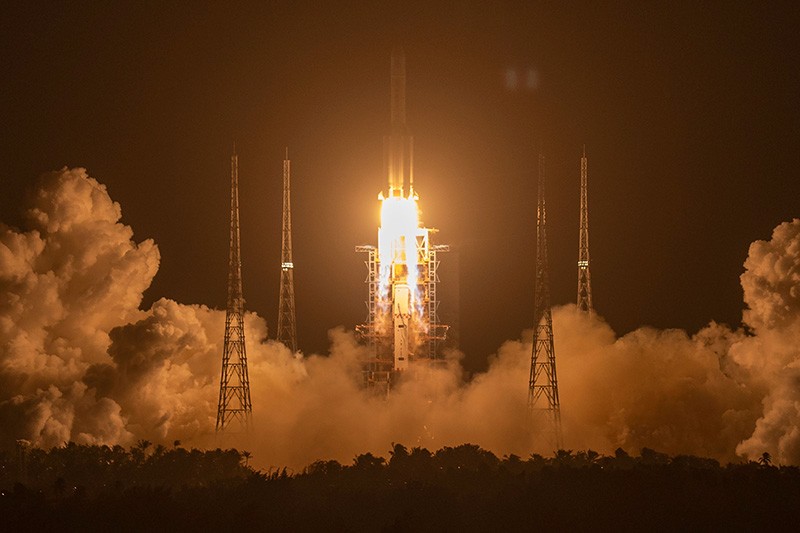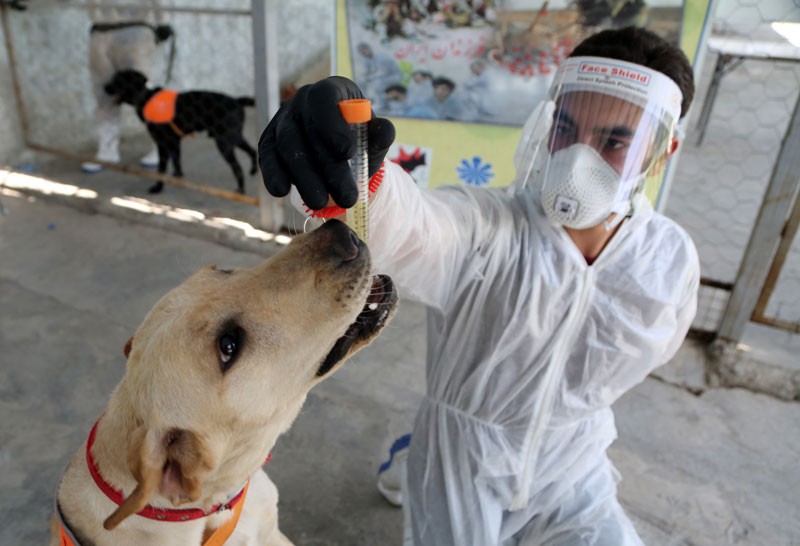Hello Nature readers, would you like to get this Briefing in your inbox free every day? Sign up here
China’s Moon rock mission is under way
The Chang’e-5 spacecraft successfully lifted off today from the Wenchang Space Launch Centre in southern China and is on its way to the Moon. Once there, its mission is to collect material from the lunar surface and bring it back to Earth, a highly technical feat that will be a first for China. Scientists worldwide will be eager to study material from the mission — the first to be collected since the US-Soviet space race — because it will help to clarify for how long the Moon was volcanically active.
Nature journals reveal open-access terms
Spurred by the open-access (OA) initiative Plan S, publisher Springer Nature has announced how scientists can make their papers in its most selective titles free to read as soon as they are published. From 2021, the publisher will charge €9,500, US$11,390 or £8,290 to make a paper OA in Nature and 32 other journals that currently keep most of their articles behind paywalls and are financed by subscriptions. It is also trialling a scheme that would halve that price for some journals, under a common-review system that might guide papers to a number of titles.
(Nature is editorially independent of its publisher, as is this Briefing.)
Hints of quintessence point at dark energy
Cosmologists say that they have uncovered hints of intriguing twisting in the movement of ancient light across the Universe. The twisting was identified in the polarization of the cosmic microwave background as observed by the Planck space telescope — but the evidence is still tentative. Some researchers have proposed that the twist is produced by a cosmic ‘quintessence’, an exotic substance that pervades the cosmos. The phenomenon could offer clues about the nature of dark energy — the mysterious force that seems to be pushing the cosmos to expand ever-faster. If dark energy is a quintessence, its push on the expansion could slowly wither or disappear, or could even reverse to become an attractive force, causing the Universe to collapse into a ‘big crunch’.
Reference: Physical Review Letters paper
Glimmer of hope for biodiversity
Estimates that half of global vertebrate populations have declined over the past five decades might be misleading. Researchers reanalysed data from the Living Planet Index, covering more than 14,000 animal populations. They found that overall estimates are skewed by terrible losses among some 3% of species, mostly among large animals and in the Indo-Pacific region. In some other places, especially northern and temperate regions, things are improving. “There are biodiversity problems. But it is not all declining worldwide nor hopeless,” says ecologist Brian Leung. “Our efforts over the last few decades have not been wasted”.
Reference: Nature paper & WWF and ZSL Living Planet Report
Features & opinion
University rankings need a rethink
World league tables for higher education are flawed and poorly used, and they entrench inequity, argues research-management expert Elizabeth Gadd. And the rankings with the largest audiences are doing the worst job, according to an exhaustive evaluation by a working group she chaired. “The consequences are all too real,” notes Gadd. “Talent deterred, income affected. And inequities quickly become embedded.”
Podcast: Make space for international postdocs
A lack of faculty positions forces many researchers to spend years moving from one temporary contract to another, often internationally. But that can rob countries of talented researchers, particularly if they leave for good. The Working Scientist podcast investigates how brain drains and demographic time bombs are forcing some countries to rethink the postdoc.
Nature Careers Working Scientist podcast | 19 min listen
The first withdrawal from the Svalbard seed bank
In 2015, scientists from the International Center for Agricultural Research in the Dry Areas (ICARDA) became the first (and so far the only) depositors to make a withdrawal from the Svalbard Global Seed Vault. The ICARDA staff had been forced to abandon their seed bank in Tel Hadia, Syria, because of the civil war. Before they did, they shipped most of its holdings — around 116,000 samples — to the facility on the Norwegian island of Spitsbergen. Over the past 5 years, they’ve successfully grown seeds from more than 100,000 of their original samples in new ancillary operations in Morocco and Lebanon, replenishing the vault’s shelves and distributing seeds to researchers and farmers.
Reference: Nature Plants paper
"What" - Google News
November 25, 2020 at 01:31AM
https://ift.tt/39eckrQ
Daily briefing: What the science says about COVID-sniffing dogs - Nature.com
"What" - Google News
https://ift.tt/3aVokM1
https://ift.tt/2Wij67R
Bagikan Berita Ini
















0 Response to "Daily briefing: What the science says about COVID-sniffing dogs - Nature.com"
Post a Comment